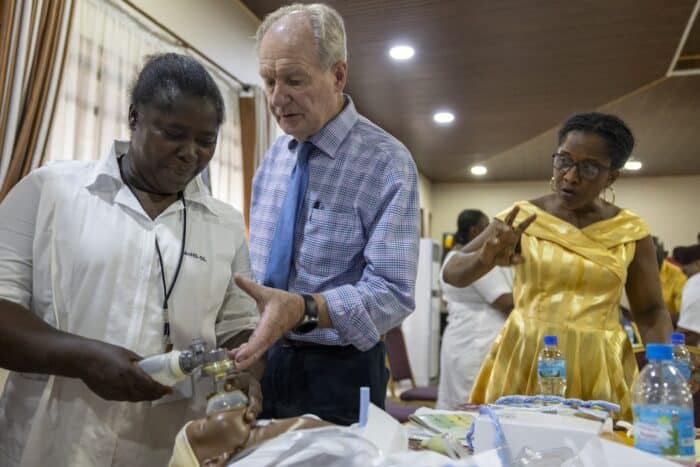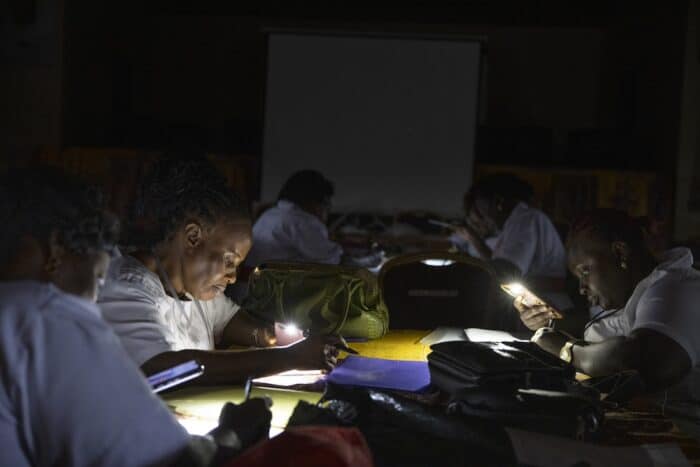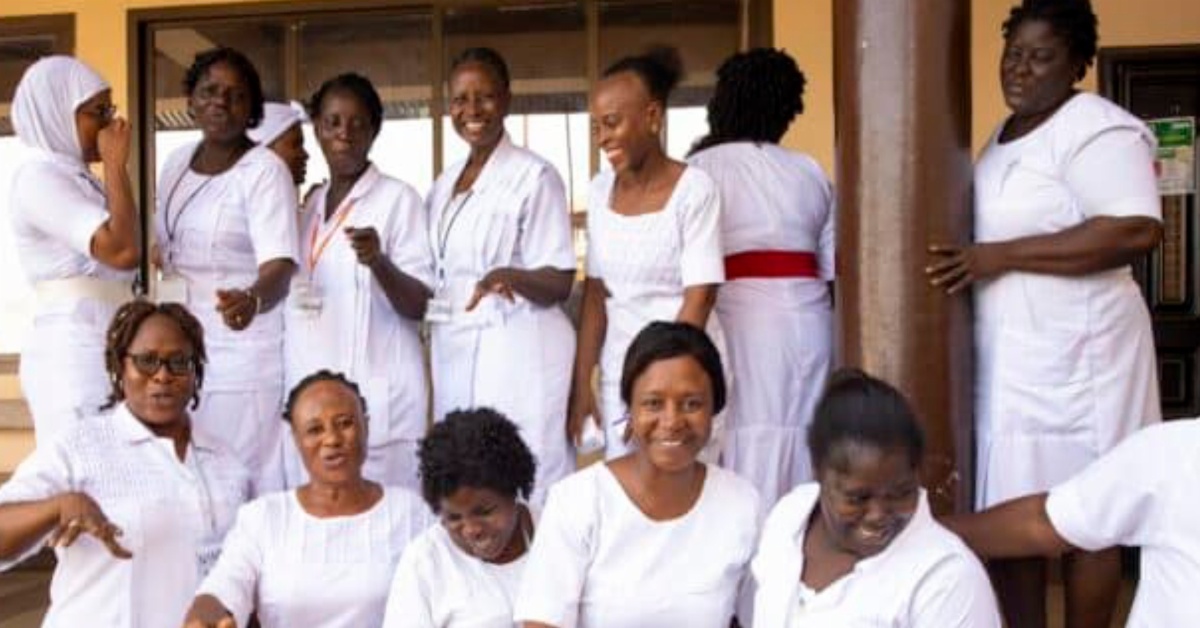As a way of improving child matanety rate in rural communities, midwives at Waterloo Community Health Center, a small hospital in the Western Rural Area district of Sierra Leone are fighting all odds to save newborn babies.
Adama is a well known name in Waterloo among women for her tremendous word at the hospital.
When Adama walks through the bustling market square, heads turn. Mothers lean in to tell their friends: “That’s the woman who delivered my baby.”
Six days a week, Adama gets on a motorbike and rides 50 minutes to work at Waterloo Community Health Center, a small hospital in the Western Rural Area district of Sierra Leone. She and her team deliver about 200 babies each month, many of whom are high-risk pregnancies referred from outlying rural communities.
“It’s hard,” she says. “But it’s a blessing to be a midwife, to bring someone into the world. People are very appreciative.’”
A single mom of three boys, Adama has experienced firsthand the journey of pregnancy and delivery, and the challenge and reward of parenthood.
In January, she and several other midwives from Waterloo attended a week-long training on how to resuscitate newborns in the “golden minute” after babies are born. The training, called Helping Babies Breathe, was hosted by Project HOPE and led by volunteers from Latter-day Saint Charities.

In her four years as a midwife, Adama has had to resuscitate babies before, but her knowledge, she says, was outdated.
“After I delivered a baby, I would wipe it dry, then apply oil, and then wipe again,” she says. “But I won’t implement that anymore.”
Now she knows how to properly use a manual resuscitator (called a bag and mask), and is putting her skills into practice, inspired and empowered with the new lifesaving knowledge.
“There are changes we need to make in the maternity unit,” she says. “We need to improve more. I didn’t know how to resuscitate a baby before. Now I feel satisfied.”
Project HOPE is working across the health system in Sierra Leone to support mothers, infants, and health workers like Adama who are determined to save lives in a country that has some of the highest neonatal and maternal mortality rates in the world.
Though dramatic improvements have been made, there is still work to be done: 443 women die for every 100,000 live births, a number six times higher than the SDG goal of less than 70, and 1 in 10 children don’t make it to their fifth birthday. Many mothers in Sierra Leone have high-risk pregnancies due to health conditions like anemia or pre-eclampsia, and some mothers are as young as 14. Additionally, many of the clinics and facilities where they deliver face a severe lack of resources, including basic medicines like oxytocin or vitamin K to stop bleeding.
But the solution to saving lives can be simple — as simple as education and training. And the cohort of midwives trained in January have the dedication and determination required to change the narrative. Adama and her fellow midwives were eager to hone and master new skills, even working through a power outage, taking tests by the light of their phones.
“I see their dedication to the people, their desire to help them, their own disappointment in the lack of resources and lack of training,” says Mark Sheffield, M.D., a board-certified neonatologist and one of the trainers from LDS. “They’re so eager to learn new things and try these basic steps that over and over again save babies’ lives.”
About 30 midwives attended the Helping Babies Breathe training, many from small rural clinics and others from urban hospitals. These lead trainers will now cascade what they learned to 150 more midwives across the region, helping save more newborn lives.
They are also getting better at guiding and supporting mothers through the process of childbirth. Yealie, a midwife who works alongside Adama at Waterloo, recently helped encourage a patient to agree to a cesarean section procedure after two days of labor. The woman was frightened — she thought something was wrong and that she was going to die — but Yealie had the skills she needed to counsel her through it.
Birth by birth, hard conversation by hard conversation, Sierra Leone’s midwives are changing the narrative, so that the health system will be one defined by progress rather than tragedy. That progress, Yealie knows, will ripple across Sierra Leone, saving the next generation of babies born at Waterloo, at rural clinics, and at larger hospitals, too.
“We counsel them, we talk to them,” says Yealie, who also attended the Helping Babies Breathe training. “Sometimes when we refer them to a bigger hospital, they won’t go. You hear that they went home to deliver and died there.

District-level midwives from around Sierra Leone take part in a Helping Babies Breathe training, led by volunteers from Latter-day Saint Charities. The trainings will help the midwives save newborn lives by teaching them to provide immediate care for babies who cannot breathe after delivery. The midwives will then cascade them in their communities. Photos taken on January 10, 2024 at the Western Area Rural District Council Building outside Freetown, Sierra Leone.
“We have been losing them and we don’t want that to happen. We want to stand for it and show the world we are capable of doing it.”











